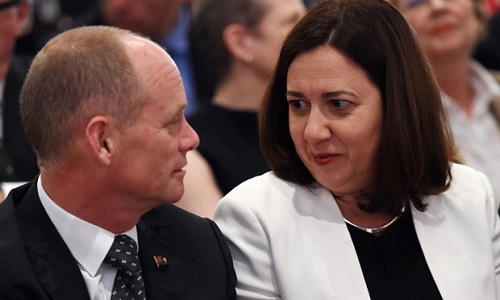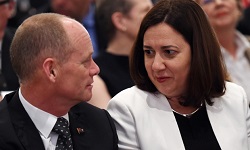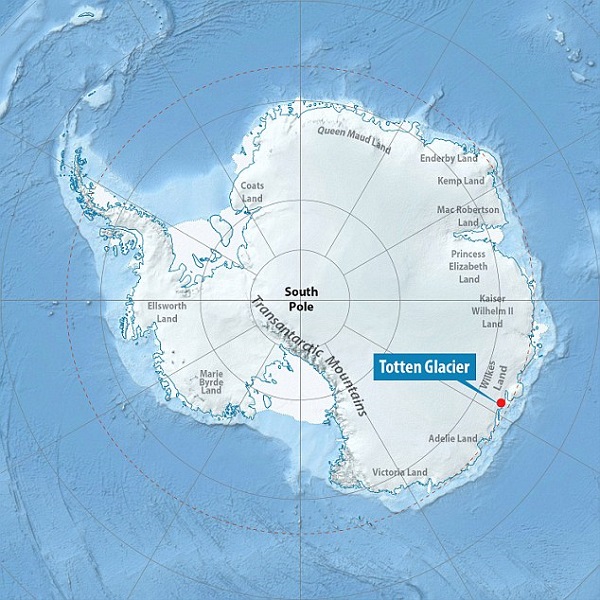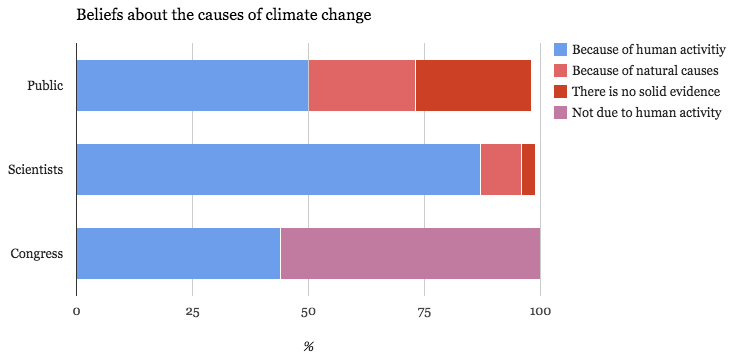
The Electoral Commission says it may take 10 days to finalise the Queensland election count. Remembering that 45 is the prize, the latest count has 42 seats to Labor, 38 for the LNP, 3 ‘other’ and 6 now undecided, up from 3 the day before.
It looks as though Pauline Hanson is in with a show in Lockyer, though Poll Bludger thinks she might come up short.
Without any confidence, I think the likeliest result will have the ALP on 44. In that case they would govern with the assistance of Peter Wellington. He could be offered Speaker, which he would refuse, preferring to actively represent his electorate. This result would avoid having to do a formal deal with KAP, but KAP would be consulted on any legislation brought forward. I think this would be ideal for democracy.
Second likeliest, I think, would be Labor on 43, necessitating a deal with KAP, who would insist on certain items like a 10% methanol in fuel mandate. It would be better if Labor could freely consider the merits of KAP policies.
Third likeliest is Labor on 45 or 42.
Meanwhile it is important to realise that Newman is still premier and leader of the LNP. Seeney announced a party meeting to resolve the leadership, for reasons best known to him, but was countermanded by Newman.
The best analytical piece so far is by Mark at The Guardian Queensland rejected hubris and unrestrained power when it rejected Campbell Newman. In effect it is a fleshing out of his statement I identified here that “the Labor victory in Queensland is a defining moment of change in Australian politics, which will never be the same.”
Some excerpts:
If the voice of Queenslanders said anything on Saturday, it thundered a rejection of the culture of power unrestrained and politicians’ hubris and arrogance. No more bills passed in the night, stripping citizens and workers of fundamental rights. No more dodgy donations. No more jobs for the boys and girls. No more “don’t you worry about that”. Queenslanders voted in massive numbers for a return to accountability and the basics of good government and democratic practice, conventions trampled underfoot by the RM Williams boots of the LNP’s ministers over the past term.
Any Queensland government must now understand there can be no going back to the dark days of the past, that there is no electoral reward to be had from “strong plans” that don’t factor in the human cost of unrestrained crony capitalism. There will from now on be no electoral reward from “strength”, if that means treating citizens with disdain and contempt.
Let all the misgovernment and malfeasance come to an end, and let it be unmourned. There was a sly charm in the old Queensland, a seductive whisper that the state’s distinctiveness was expressed through its baroque tropical politics, a humour beneath the cattleman’s hats. But Russ Hinze is dead, he’s not sleeping. He was never a king or an emperor, even if Sir Joh was a Knight, and after this result, he should never be coming back. Lawrence Springborg and the LNP – take note.
To understand fully the Russ Hinze reference, you have to read the whole piece, which I recommend.
One of the ways Labor reconnected with the community was through the choice of an “astonishingly diverse array of candidates”, including:
Leanne Enoch, the state’s first Indigenous woman MP, as well as electricians, defence lawyers, medical specialists and tradies.
In a sense, then, one sleeping giant has been awakened through this election – the sense that so many have of Queensland as a project. A work in progress, sure, but progress to a more humane, more inclusive, more transparent, fairer and more accountable polity and society. That project, the legacy not just of figures such as Tony Fitzgerald and the late Wayne Goss but also of a multitude of activists and citizens over the decades, has shown its strength when tested against the flim flam of “strong plans” offered by a rattled party in a state of advanced decay.
Political nostrums that have endured for ages should now be tossed out, along with the many, many LNP MPs who have lost their seats. The LNP must understand that Russ Hinze’s ghost no longer slumbers under the hills of Coomera. And Labor, though it will tread softly, has learned the key lessons of its defeat in 2012 – that privatisation is poison, that Queenslanders want a government that respects not hectors them, and that there’s life still in social democratic politics, provided it connects with citizens. This result is truly an astonishing one, and its implications are manifold. The political rulebook has been smashed to smithereens along with the LNP’s majority, and every political party must now take stock.
There will be fewer cranes, diggers and bulldozers than there would have been if people had voted for the ‘Strong Choices’ on offer, but as Mark says, Queensland is a project and we look forward to a softer, more congenial, more humane polity and society. Palaszczuk has promised a consultative, consensual style, of bringing Queenslanders together. She was never overtly ambitious, but has grown in the role of leader. We must hope that she can make the transition into the real job, where Newman manifestly failed.
Elsewhere Jason Wilson has a fine piece The world is turning against austerity. Now it’s Queensland’s turn, Mark outlines the sequence of the Newman/LNP maladministration in Why you should not go to war with the public #qldvotes, Jason Wilson again in Why Queensland will never Joh again, and Mr Denmore at Failed Estate has a piece Graffiti Crimes where he looks at the coverage, the disgraceful front page propaganda we got from the Courier Mail and the role of social media.
In a piece published before the election Brian Costar, inter alia, points out the difficulty encountered by polling companies in finding representative samples over the holiday period, and how optional preferential voting renders the concept of ‘two party preferred’ meaningless.





